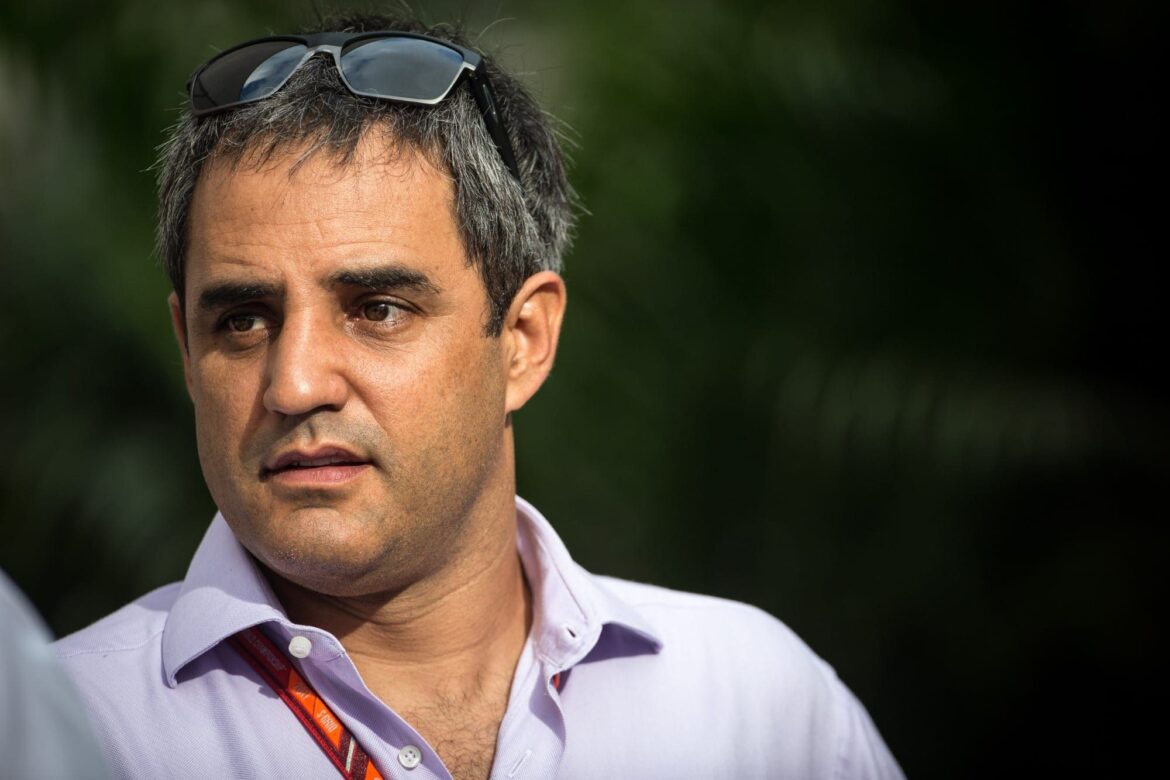Juan Pablo Montoya Raises Concerns About Red Bull Racing’s Future
Juan Pablo Montoya, a former Formula 1 driver renowned for his impressive career, has issued a significant warning regarding the upcoming challenges that Red Bull Racing may face. As the team gears up for its debut as a power unit manufacturer in 2026, Montoya expresses concerns about potential technical difficulties that could mirror the current struggles of Williams, a team that has found itself firmly in the midfield.
Montoya emphasized his point in a recent interview, stating, “Red Bull will have a power unit next year, but it remains uncertain how effective it will be.” He suggested that the team might end up in a position similar to that of Williams today, which is indicative of a broader concern regarding their competitive edge in the sport.
Adding to the intrigue, Montoya questioned the future of star driver Max Verstappen with Red Bull if the team were to perform poorly. “Should Red Bull truly find itself in the midfield, Verstappen will have to seriously consider whether he wants to remain with the team,” he remarked. This contemplation is further complicated by existing contract clauses that could facilitate an early exit for the Dutch driver.
Since the announcement of a new generation of engines set to debut in 2026, speculation has arisen about Red Bull’s ability to keep pace with rivals, particularly Mercedes. Many industry experts regard Mercedes as a frontrunner in the development of new hybrid units for the upcoming season, casting a shadow on Red Bull’s prospects.
In this context, Verstappen’s future with Red Bull hinges closely on the performance of the new engine. While there have been whispers about potential team changes, the options for Verstappen appear limited. A move to McLaren seems unlikely, as both Lando Norris and Oscar Piastri are locked into long-term contracts. Meanwhile, a transfer to Mercedes would entail significant internal adjustments within the team.
Montoya pointed out the complexities of such a move, saying, “The problem is that McLaren has just renewed with Piastri.” He further pondered, “Would Toto Wolff consider letting Antonelli go to accommodate Verstappen? Or would he prefer to replace Russell? I’m not sure how quickly that decision could be made.”
Verstappen’s contract extends until 2028, but it includes exit clauses that could be activated if Red Bull fails to provide competitive conditions. The performance of Red Bull’s own engine, developed through Red Bull Powertrains-Ford, could play a crucial role in determining the future of the four-time world champion in the sport.
The upcoming transition to a new engine formula in Formula 1 represents a significant shift for all teams, and it could redefine the competitive landscape. Red Bull Racing, which has enjoyed considerable success in recent years, now faces the daunting task of establishing itself as a competitive power unit manufacturer. This new venture demands not only technical prowess but also strategic foresight and adaptability in an ever-evolving racing environment.
As the 2026 season approaches, the pressure mounts on Red Bull to deliver a power unit that can rival those produced by established competitors. The team’s ability to innovate and harness cutting-edge technology will be pivotal in maintaining their position as a top contender in the sport.
The implications of these developments extend beyond just Red Bull and Verstappen. The dynamics of the entire grid could shift as teams jockey for position in the wake of the new regulations. The ability to adapt to these changes will determine not only the success of individual teams but also the overall competitiveness of Formula 1.
The uncertainty surrounding Red Bull’s future is compounded by the fact that Formula 1 is a sport defined by rapid advancements and fierce rivalries. Teams that fail to keep pace with technological developments risk falling behind, which is a fate that Montoya warns could befall Red Bull if they do not execute their plans effectively.
As fans and analysts alike await the outcome of Red Bull’s efforts, the spotlight remains firmly on Verstappen. His status as one of the premier drivers in the sport means that any decision he makes regarding his future will have significant ramifications for both his career and the teams involved.
In conclusion, as Red Bull Racing prepares for a new chapter in its history, the stakes have never been higher. The challenges posed by the transition to a new power unit, combined with the uncertainties of driver contracts and team dynamics, create a complex landscape that will require keen strategic thinking and innovative problem-solving. With Montoya’s insights highlighting potential pitfalls, the team must navigate this critical juncture with both caution and ambition.
As the 2026 season draws nearer, all eyes will be on Red Bull Racing, Max Verstappen, and the evolving landscape of Formula 1. The decisions made in the coming months will not only shape the future of the team but could also redefine the competitive hierarchy within the sport itself. With technology and talent at the forefront, the journey ahead promises to be as exhilarating as the races themselves.
